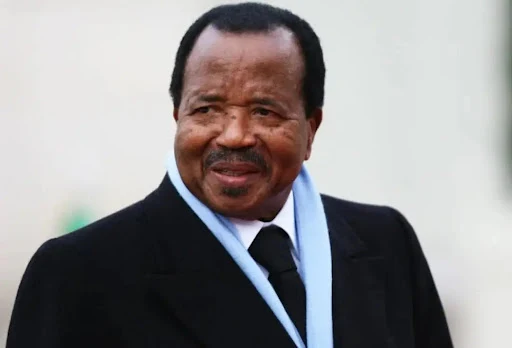Paul Biya, Cameroon’s longest-serving leader, has reportedly passed away at the age of 91, bringing an end to his 42-year reign. Biya, who became president in 1982, has been one of the most enduring figures in African politics, making him the second-longest-serving president on the continent, behind Teodoro Obiang Nguema of Equatorial Guinea.
Biya's absence from public events since the China-Africa Summit in early September 2024 raised concerns about his health, as speculation about his condition mounted. His absence was particularly noticeable given his usually prominent role in state affairs. ABS Television, a media outlet, announced Biya's death, citing sources from Switzerland and France who confirmed his passing. The Cameroonian government has not yet made an official statement.
Born on February 13, 1933, Paul Biya first entered politics in the early 1960s after Cameroon gained independence from France. He served in various roles within the government, eventually becoming Prime Minister in 1975 under President Ahmadou Ahidjo. In 1982, Ahidjo resigned unexpectedly, and Biya ascended to the presidency.
Under Biya’s leadership, Cameroon experienced both political stability and economic challenges. While his administration was credited with maintaining peace in a region often fraught with instability, Biya's regime was also criticized for authoritarianism, suppression of opposition, and a lack of democratic reforms. His government faced increasing criticism, particularly during the Anglophone Crisis, where tensions between the French-speaking majority and the English-speaking regions of the country escalated into violent conflict.
Despite calls for political change, Biya remained in power through repeated elections, many of which were marred by accusations of voter fraud and manipulation. His grip on power earned him the reputation of being a "monarch-like" figure in Cameroon, with limited political freedoms and a highly centralized system of governance.
In recent years, Biya spent more time in Switzerland, often sparking rumors about his health, but the government repeatedly dismissed such speculations. His long reign, however, came to symbolize the era of "strongman" leaders who have held onto power across parts of Africa.
As the nation awaits an official statement on Biya's reported death, Cameroon faces a significant transition. His passing leaves uncertainty about the country’s political future, as there has been no clear successor or plan for leadership beyond Biya's regime. His departure marks the end of an era in Cameroonian politics, and the nation now stands at a crossroads, with both domestic and international observers watching closely.
Cameroonians, especially those who have long called for political reforms, now look toward a new chapter, while reflecting on the complexities of Biya’s legacy—one marked by longevity, control, and a divided nation.
Tags
News

